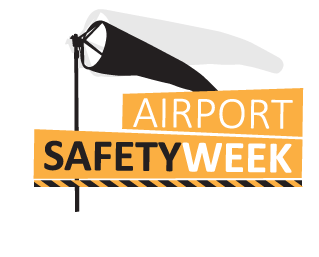- Managing fatigue is everyone’s responsibility. Together, employees and employers have clear responsibilities to manage fatigue.
Fatigue is a safety risk that needs to be managed. When working airside it is important to recognize the signs of fatigue and be aware of how it could affect your performance on the job.

Fatigue can significantly delay your response and reaction times, impair reasoning, reduce vigilance and affect hand- eye coordination.
But the greatest single threat is being unaware that it is happening.
Fatigue is brought on by the amount of time you’ve spent on the job and the type of work you have been doing. It is also attributable to what you are doing when not at work. If you have another job, especially one that requires long hours and involves strenuous activity or long periods of concentration, you’re more prone to fatigue when at work.
Managing fatigue is everyone’s responsibility.
What are the effects of fatigue?
Fatigue reduces your ability to concentrate. Specifically, the effects include:
- slowed reaction times
- reduced vigilance
- slower mental abilities
- memory problems
- poor communication
- reduced alertness
- poor decision-making
- fixation on a single task
- actually falling asleep while working.
Tips for countering fatigue
Be conscious of the quality of your sleep – if your sleep quality has been poor, it may not be safe to keep working.
When assessing your potential fatigue levels, take into account all activities you do throughout your day.
Proper nutrition and plenty of water helps keep you alert:
- minimize fatty and high-sugar foods
- don’t rely on caffeine (coffee, energy drinks) as it only provides short-term relief from the effects of fatigue.
Remember, getting enough quality sleep is essential to avoiding fatigue.
What’s your fatigue risk?
Use the following checklist to give yourself an objective assessment of your fatigue risk:
- Did you have less than eight hours sleep last night?
- Have you missed out on adequate sleep over the previous nights?
- Has your sleep been disrupted?
- Have you been awake and/or at work for an extended period?
- Have you had less than six hours sleep in the last 24 hours (or less than 14 hours sleep in the last two days)?
- Have you had a recent illness or injury?
- Are you affected by medication, other drugs or alcohol?
If your answer to one or more of these questions is yes or even maybe, you’re at a higher risk of fatigue.
Share this information with your co-workers and family. Ask them to keep an eye on your performance. Do the same for others you work with.
Managing fatigue is everyone’s responsibility. Together, employees and employers have clear responsibilities to manage fatigue.
Employers have a duty of care to provide safe work schedules that permit adequate time for an employee to sleep, rest and recover as well as fulfil their social and domestic responsibilities.
Employees also have a duty of care to use their time away from work to get enough sleep and recovery time so they can complete their work duties safely and responsibly.


